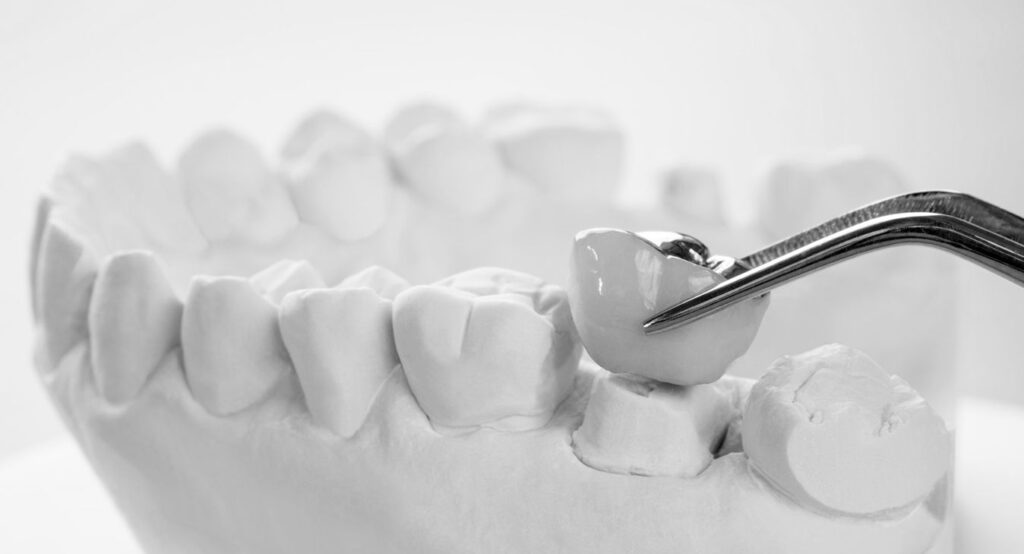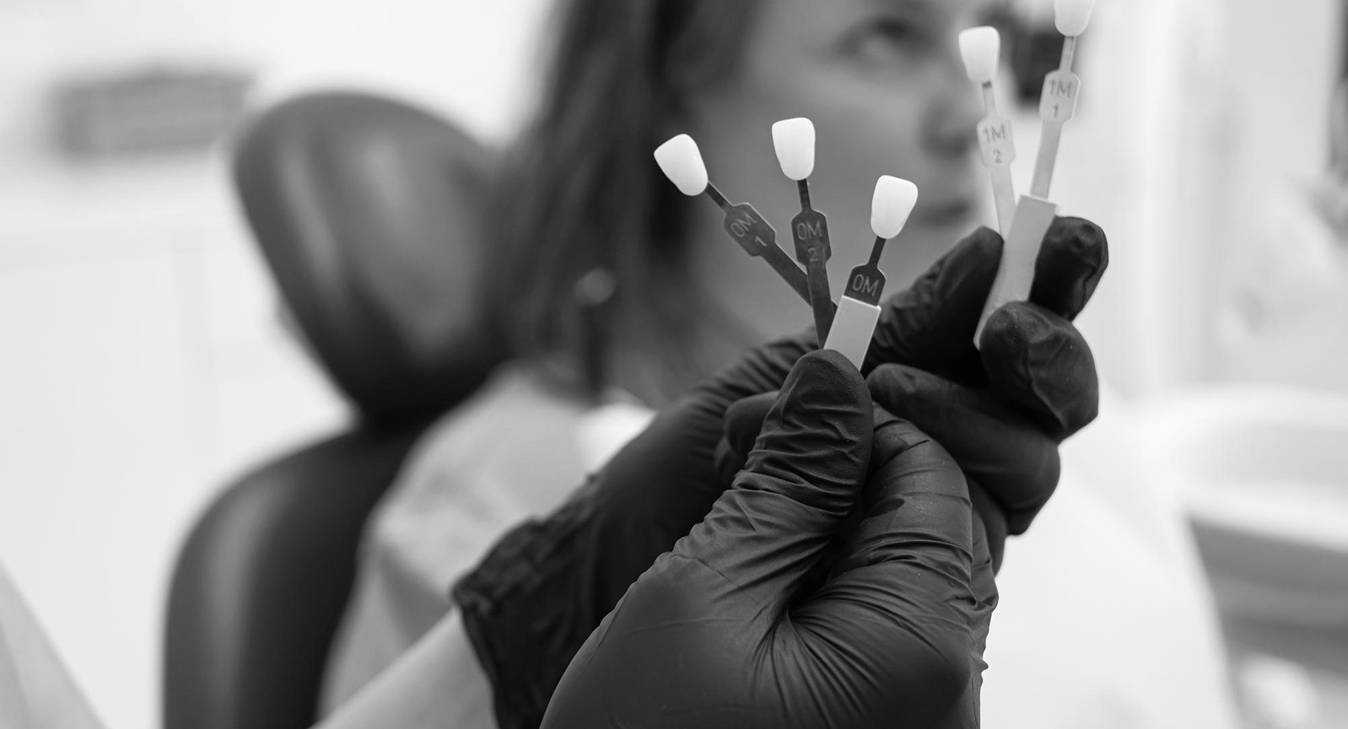What Are Dental Crowns?
Dental crowns are caps placed over damaged teeth to restore their shape, size, strength, and appearance. They are commonly used to protect weak teeth, restore broken teeth, cover dental implants, or improve the aesthetics of teeth. Crowns can be made from various materials, including porcelain, ceramic, metal, or a combination, and are designed to look and function like natural teeth. This dental treatment helps in maintaining oral health and provides a durable solution for tooth restoration.
Dental Crowns in Buenos Aires.
On this page, you’ll find comprehensive insights on affordable dental implants in Argentina. We explain what these implants are, explore the benefits of obtaining treatment abroad, and highlight the key factors you should consider when evaluating dental implant options overseas.
- What Dental Crowns Costs
- Benefits of Crowns Abroad
- Things to Pay Attention To


Planning to get a Dental Crown in Argentina?
Planning ahead is a smart move when you’re considering a dental crown in Argentina—it’s not something that wraps up in just one visit. The process involves a few steps both before and after the main treatment. That’s where our premium service center comes in. It’s a free, no-strings resource that helps you map out and schedule all the necessary appointments, so your treatment fits seamlessly with your travel plans.
Benefits of Getting Dental Crowns in Buenos Aires.
Before we further deepdive on the procedure of dental crowns, we first like to highlight the benefits of getting dental crowns in Buenos Aires.
Significant Cost Savings
Choosing dental crowns in Buenos Aires can be a really smart decision if you’re after quality care without the high price tag. Many patients have found that costs there can be 50% to 70% lower than in the United States, meaning you can receive expert treatment while keeping your budget in check. That extra savings might even let you enjoy more of what Buenos Aires has to offer or set aside some funds for future dental needs. And rest assured, you’ll be cared for by experienced professionals who truly value your comfort and well-being.
High Quality Dental Care
In Argentina, dental clinics are recognized for their high standards of care, using modern technology and premium materials similar to those in the U.S. At Teeth Traveler, the clinics we work with utilize advanced tools like 3D imaging and CAD/CAM systems to make your dental crown procedure both precise and efficient. They focus on delivering a comfortable experience that meets your unique needs. It’s all about combining innovative technology with genuine care to help you feel confident throughout your dental journey.
Experienced, Skilled Dentists
In Buenos Aires, you’ll find dentists with international training and years of experience, ensuring that you receive skilled care with a personal touch. Our team stays up-to-date with the latest techniques by participating in international workshops. This way, your treatment is both modern and informed by global best practices. They take the time to understand your needs and preferences, offering dental care that’s professional yet truly personalized.
Comprehensive Dental Offers
In Buenos Aires, you’ll find a complete range of dental treatments, from crowns and veneers to implants, all conveniently available in one place. This coordinated approach makes your dental care feel simple and stress-free. Whether you need restorative work or cosmetic improvements, you can access personalized treatments in a welcoming, professional setting that’s designed to meet your unique needs.
Combing Dentistry with Travel
During your dental trip, you’ll have the chance to soak up the vibrant spirit of Buenos Aires. This city is a rich tapestry of culture and history, with plenty to enjoy—from tranquil parks and quaint local cafes to energetic tango shows and delicious traditional cuisine. Taking a little time to explore on your own can make your visit even more rewarding, mixing quality dental care with the authentic experience of everyday life in this lively city.
Extreme Short Waiting Times
In Argentina, it’s often much easier to book dental appointments, and wait times are usually shorter than in the U.S. This efficiency means your treatment can move along quickly, leaving you more time to explore and enjoy your stay. The goal is to provide timely, hassle-free care that fits perfectly into your travel plans, making your visit both practical and stress-free.
Highly Personalized Care
Smaller clinics in Buenos Aires often offer a more personal and attentive approach to dental care. They focus on creating treatment plans that are uniquely tailored to you, so your experience feels relaxed and individualized. The environment is welcoming and centered on your comfort and well-being, ensuring that every step of your dental journey is approached with genuine care.
Procedure of Dental Crowns in Argentina.
The procedure of dental crowns can take various appointments. In this section we therefore explain in detail what you can expect. From the amount of appointments you might need to get, till each step in the procedure.
Steps Before, During and After Dental Crowns.
Getting dental crowns abroad typically involves six key steps. Understanding each step helps guide you toward a smooth and successful treatment process. It’s essential to work with clinics that value transparency throughout your journey.
Online Intake with Your Dentist
First, you’ll have a free online video intake where you discuss your case and goals and receive a clear estimate of the overall procedure. If you’d like, you can also talk about travel logistics. This free session gives you a chance to connect with one of the dentists in our network and see if you feel comfortable to be attended by him or her.
Based on this intake and the additional details you provide, the dentist will craft a tailored treatment plan for you.
Consultation at The Practice
During your initial consultation, the dentist uses advanced imaging tools like X-rays and 3D scans to assess your teeth and gums accurately. They discuss your dental history, goals, and concerns, then develop a tailored treatment plan that outlines the steps, expected outcomes, and cost estimates. This personalized approach is designed to help guide you with clear, reliable information for making informed decisions about your dental journey.
Preparation of Your Tooth
The tooth preparation process starts by reshaping the affected tooth under local anesthesia for your comfort. We then take precise impressions—either digitally or with traditional methods—to craft a custom crown that fits perfectly. A temporary crown protects the tooth while your permanent crown is created, ensuring a secure fit and a natural look.
A Temporary Crown for Safety
Temporary crowns play a crucial role in protecting the prepared tooth while the permanent crown is being made. They safeguard against sensitivity and damage, allowing you to maintain normal function and appearance. It is important to care for temporary crowns by avoiding sticky or hard foods and practicing good oral hygiene. Gentle brushing and flossing around the temporary crown will help prevent any complications. Temporary crowns are a vital step in the treatment process, ensuring the tooth remains protected and comfortable.
Fitting Your Permanent Crown
Once your permanent crown is ready, the dentist will carefully fit and adjust it to ensure a perfect match. They will assess your bite and alignment, making any necessary tweaks for optimal comfort and function. The crown is then securely cemented using a strong dental adhesive. This procedure is typically quick and painless, resulting in a durable, aesthetically pleasing restoration. After placement, many patients notice immediate improvements in both appearance and function.
Post-Procedure and Aftercare
Maintaining dental crowns is all about good daily habits and regular dental check-ups. It helps to brush and floss every day to keep plaque away from the crown. Avoid biting on hard objects and limit foods or drinks that may stain. Regular visits to your dentist will help catch any issues early, ensuring the crown stays in good condition. With proper care, dental crowns can remain effective for many years.
Affordable Dental Crowns in
Buenos Aires vs. The US.
Dental crowns in Buenos Aires are often more affordable than in the U.S. Below, we share cost estimates for crown procedures in Argentina. Note that these prices are indications prices based on the use of premium, high-quality materials and that additional procedures like CTs might sometimes not be necessary.
| Dental Crown Procedures | US & Canada | Argentina |
|---|---|---|
| Initial Consultation | $100-$200 | $50-$100 |
| Dental X-rays | $50-$200 | $20-$50 |
| Tooth Preparation | $300-$800 | $150-$400 |
| Temporary Crown | $100-$300 | $50-$150 |
| Impressions (Digital or Physical) | $200-$500 | $100-$300 |
| Permanent Crown (Porcelain or Zirconia) | $800-$2,500 | $400-$1,200 |
| Post-Procedure Care | $50-$150 | $20-$100 |
| Total Cost of One Dental Crown | $1,600-$4,650 | $790-$2,300 |

Different Types of Dental Crowns and Materials.
There are several types of dental crowns, each made from different materials with unique characteristics. In this section, we review the most popular options and explain how they differ in terms of their final appearance and function. For more detailed information on the materials, you can explore further.
Porcelain Crowns
Porcelain crowns are popular because they can match the natural color of teeth, making them a common choice for front teeth where aesthetics are a priority. They are made from biocompatible materials, which means they generally don’t trigger allergic reactions. Pros: They offer a natural appearance and are biocompatible. Cons: They tend to be less durable compared to metal options. Best for: They are ideal for front teeth needing cosmetic enhancement. Patient Tip: Avoid hard foods to reduce the risk of cracking.
Zirconia Crowns
Zirconia crowns are renowned for their exceptional strength and durability, making them an excellent option for back teeth where you need to withstand heavy chewing forces. They can also be layered with porcelain to enhance aesthetics while maintaining their robust properties. Pros: They are extremely strong and durable. Cons: They can be more expensive than other options. Best for: They are particularly suitable for back teeth. Patient Tip: Ensure proper fitting to help avoid any bite issues.
Porcelain-Fused-Metal Crowns
PFM crowns combine the strength of metal with the natural aesthetics of porcelain. They feature a metal base covered by a porcelain layer, offering both durability and a lifelike appearance. Pros: They are strong and aesthetically pleasing. Cons: They may show a metal line over time. Best for: They work well for both front and back teeth. Patient Tip: Regular check-ups can help monitor the metal base over time.
E-max Crowns (Lithium Disilicate)
E-max crowns are crafted from lithium disilicate, a material known for its strength and appealing aesthetics. They work well on both front and back teeth, offering a natural look and good durability. Pros: They are robust and aesthetically pleasing. Cons: They can be more expensive than some alternatives. Best for: Those seeking a natural-looking, strong crown. Patient Tip: Maintain good oral hygiene to help prevent decay around the crown.
Metal Crowns
Metal crowns are made from alloys such as gold, platinum, or base metal alloys and are well-regarded for their durability and wear resistance. They’re particularly suitable for molars that handle heavy chewing forces, even though their metallic look makes them less ideal for visible teeth. Pros: Very durable. Cons: Poor aesthetics. Best for: Molars. Patient Tip: Consider them if longevity is your priority and appearance isn’t a main concern.
Choosing a Clinic in Buenos Aires for Dental Crowns.
Dental crown procedures often require multiple visits, so choosing a clinic with clear, efficient, and well-organized treatment processes is essential. Here are some key points to consider when selecting a dental clinic in Argentina.
Detailed Guide
To Choose a Dental
Clinic Abroad
Dentist's Experience with Crowns.
When planning your dental treatment, the experience and qualifications of the professionals you choose really matter. You want to work with a clinic where the dentists have international training and plenty of experience in cosmetic dentistry. A skilled dentist can help ensure your crown is fitted and placed correctly, which may reduce issues like misaligned bites or loosening down the line. It’s a good idea to verify the dentist’s credentials, read patient testimonials, and check if they are part of reputable dental organizations to feel confident about your choice.
When you’re considering combining crowns with dental implants, it’s also important to see how the implant specialist and the prosthodontist work together. Their teamwork can make a big difference, not just in the efficiency of your treatment, but in the overall quality and durability of the dental work you receive.
Material Quality Used for Crowns.
The materials and technology used for your dental crowns play an important role in their durability and appearance. It can be beneficial to consider clinics that utilize established materials such as porcelain, zirconia, or E-max, along with advanced tools like CAD/CAM systems and 3D imaging to help achieve accurate results.
Some patients also find reassurance in clinics that offer guarantees for the materials used. In some instances, materials sourced from reputable suppliers in regions like the United States or Switzerland are preferred for their quality.
- Double Check Materials Used
- Opt for Swiss and US Materials
- Expect a Detail Treatment Plan!
- Make sure Aftercare is Ironclad!
Key Topics To Consider When Getting Dental Crowns Abroad.
We provided you with several things to consider when chosing to get dental crowns abroad and listed a few other ones as well.
Certified Prosthodontist
When you choose a certified prosthodontist, you’re receiving care from someone with specialized expertise in dental restorations. Their advanced training helps ensure that your crowns are meticulously crafted and fitted to your unique needs, reducing the chance of future complications. Taking a moment to review their credentials and experience can boost your confidence in the care you’ll receive.
Technology and Techniques
Modern technology, like CAD/CAM systems and 3D imaging, plays a key role in achieving a precise fit for your crowns. When a clinic uses these tools, it often results in more predictable outcomes and quicker treatment times. Knowing that your treatment plan benefits from such technology can make you feel more at ease throughout the process.
Managing Complications
Even with excellent care, complications may sometimes occur. It’s important that your chosen clinic has a clear plan to handle any issues, such as adjustments or signs of infection. It’s reassuring to know that an experienced dental team is ready to address your concerns promptly to keep your recovery on track.
Aftercare and Maintenance
Proper aftercare is essential for maintaining your dental crowns over time. Your clinic should provide you with clear instructions on cleaning, flossing, and scheduling regular check-ups. This guidance empowers you to protect your crowns and enjoy their benefits for the long term.
Managing Discomfort
It’s common to experience a bit of discomfort after getting crowns, but this is generally manageable. When your dental team takes the time to explain what to expect and offers practical tips for relieving any pain or sensitivity, your recovery can be much smoother. Their guidance helps ensure you feel comfortable as you heal.
Check Longlevity of Crowns
The longevity of your dental crowns depends on several factors, including the materials used, the placement technique, and your adherence to aftercare recommendations. Being informed about the materials and their typical durability can give you peace of mind. Some reputable clinics may even offer guarantees, reflecting their confidence in the quality of their work and supporting your long-term satisfaction.
Why People Choose Their
Prosthodontists Via Teeth Traveler.
Many patients choose Teeth Traveler because they appreciate the exceptional service and personalized care provided by our boutique dentists, especially when it comes to crown treatments. Our network of independent clinics is known for its focus on quality and attention to detail, ensuring that your dental crown procedure is handled with precision and care. This tailored approach means you receive a dental experience that prioritizes your comfort and aims for excellent, long-lasting results.
Discover the Reviews
Of Patients
Prices of Our Dental Crown Procedures.
To keep things transparent, the dentists we work with usually offer three pricing options for dental crowns. Two options come with fixed prices, while a third package is customized to suit your needs.
Crown Plain
Treatment duration is 1-2 daysSame Day Treatment
*Estimated Price
-
Free Checkup & Cleaning
-
Scan & Impressions
-
Porcelain Crown*
-
Online Aftercare
-
Material Guarantee
*One crown of porcelain or Emax
A Direct Agreement with The Dentist
Crown Smile
Treatment duration is 1-2 daysSame Day Treatment
*Estimated Price
-
Crown Plain
-
Professional Whitening
-
Essential Care Treatment*
-
Care Instruction Plan
-
Digi Treatment Document
*Includes fillings for small caries
A Direct Agreement with The Dentist
Crown Complete
Treatment duration is 2-3 daysSame Day Treatment
*Estimated Price
-
Crown Smile
-
Smile Makeover Light*
-
Personal Dental Assistance
-
Follow-up Dentist at Home
-
Digi Treatment Document
*Includes bonding for imperfections
A Direct Agreement with The Dentist
Patient Reviews on
Dental Crown Treatments.
We’re happy to share our patients’ experiences with dental crown treatments. Below, you’ll find a collection of reviews from those who trusted the dentists in our network to take care of their dental needs.
Reviews on Dental Crowns.









Plan an Intake.
Online. For Free.
Before you embark on your dental crown journey, it’s important to be well-informed. The dentists we work with, who are experts in dental crowns, typically arrange a free online intake to get to know you better and outline the necessary steps.
Frequently Asked Questions (FAQs) on Dental Crowns Abroad.
We receive many questions each day about getting dental implants overseas. That’s why we’ve organized some of the most common ones with brief answers to help you out. If you don’t find your question here, feel free to ask our colleagues via chat for free.
How much does a crown cost in Argentina?
Dental crowns in Argentina offer a cost-effective solution for those looking to restore their teeth with high-quality materials. Whether you choose porcelain-fused-to-metal, gold, or zirconium, each option provides durability and aesthetic benefits at a fraction of the cost typically seen in other countries.
The table below details the different types of crowns available, helping you make an informed decision based on your needs and budget.
| Procedure | Minimum Price (USD) | Maximum Price (USD) |
|---|---|---|
| Crown (Porcelain fused to metal) | $300 | $400 |
| Crown (Gold) | $400 | $500 |
| Crown (Zirconium) | $450 | $550 |
How much do most dentists charge for a crown?
Most dentists charge between $500 and $3,000 for a dental crown, depending on the material. Porcelain crowns cost $800 to $3,000, offering a natural look. Porcelain fused to metal crowns are $800 to $1,400, while metal crowns, including gold, range from $800 to $2,500. Costs in Buenos Aires, Argentina, are generally lower.
What is the most expensive crown for a tooth?
The most expensive crown for a tooth is typically a zirconia crown. Zirconia crowns are highly durable and biocompatible, offering a natural appearance without the use of metal. Their advanced material and benefits make them the priciest option, with costs ranging from $1,000 to $2,500 per tooth, depending on the dentist and location.
What is cheaper than a crown?
A cheaper alternative to a dental crown is a dental filling. Fillings can repair decay or minor damage to a tooth, making them a more affordable option. However, they may not be as durable or effective for severe damage, and often serve as a temporary solution rather than a long-term fix.
How long do dental crowns last?
Dental crowns typically last between 5 to 15 years, depending on the material used and how well they are cared for. Crowns made from metal tend to last longer, while those made from porcelain or resin may wear down more quickly. Good oral hygiene and regular dental check-ups can help extend the life of a crown.
What is a natural alternative to a crown?
A natural alternative to a dental crown is using inlays or onlays. These partial coverage options are less invasive and conserve more of your natural tooth structure. Unlike crowns, which require significant grinding of the tooth, inlays and onlays are placed on the damaged area, preserving the healthy parts of the tooth while providing strength and protection.
How to fix a tooth without a crown?
To fix a tooth without a crown, one effective method is using composite resin. This material, a blend of tooth-colored plastic and glass, is applied directly to the tooth and hardened with a special light. It can restore the tooth’s appearance and function without needing a crown, onlay, or inlay, providing a less invasive solution.
Are crowns worth the money?
Dental crowns are worth the investment for restoring and protecting damaged teeth. They strengthen weakened teeth, enhance appearance, and prevent further decay or damage. With proper care and regular dental visits, crowns can last many years, making them a durable and cost-effective solution for long-term dental health.
Ask Your Question
At Teeth Traveler, we’re here to share helpful information — not to offer medical advice. This information on this page is for general informational purposes only and does not constitute medical advice, diagnosis, or treatment. Teeth Traveler is not a healthcare provider and does not offer medical services. The clinics listed on our platform operate independently and are responsible for the care they provide. While we aim to offer helpful guidance, readers are encouraged to consult directly with licensed dental professionals before making healthcare decisions or pursuing treatment abroad. No rights may be derived from the information provided on this page. For more details, check our disclaimer and terms of use.
